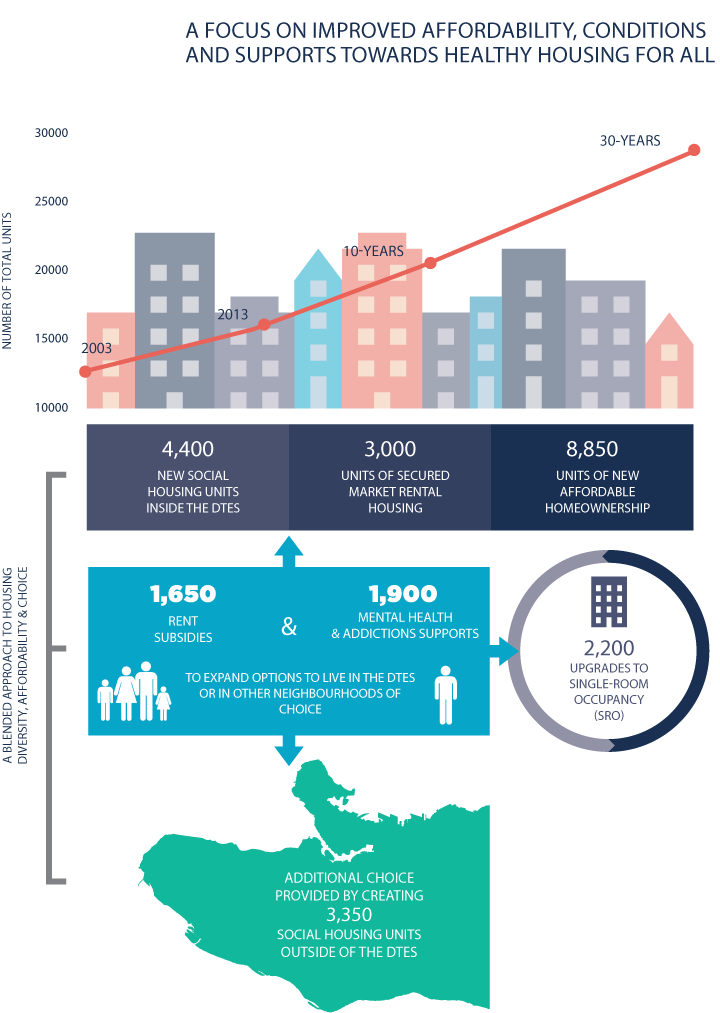Vancouver council has begun discussing a 30-year neighbourhood plan for the Downtown Eastside today, but local activists are pushing for amendments to the plan.

MORE: City hopes Downtown Eastside plan will transform neighbourhood, stabilize low-income community
Dozens of speakers gave councillors their thoughts on the project Wednesday afternoon before the meeting was adjourned until Friday.
“Nobody loves 100% of the plan, but that means everybody’s voice was heard in the plan,” said Vision councillor Andrea Reimer – optimism that was contrasted by her Vision counterpart George Affleck.
“We tried a similar plan in 1964, and it failed,” he said. “Where does the money come from? The math just doesn’t add up.”
The plan calls for $200 million from the city, $300 million from developers, and $500 million from other governments – but B.C. Housing Minister Norm Coleman has already said the province won’t support the project.
The Carnegie Community Action Project also presented a 6,000 signature petition demanding a Social Justice Zone in the DTES to “Create plans and projects to make sure low-income people have jobs, among other things. They also presented a 3,000 signature petition with specific amendments to the plan.
The city hopes to prevent the neighbourhood’s low-income community from being displaced. Most controversially, it would create a condo-free zone in the Downtown Eastside Oppenheimer District, and have any new projects to have 60 per cent social housing and 40 per cent “secured market” rental housing.
While it was developed with stakeholders over many years, some developers have argued the plan would limit development and fail to integrate the neighbourhood. The Carnegie Community Action Project, while supporting the 60/40% housing split, has criticized changing the city’s plan to broaden the definition of “social housing” they say would discriminate against people on social assistance and basic pension.


Comments